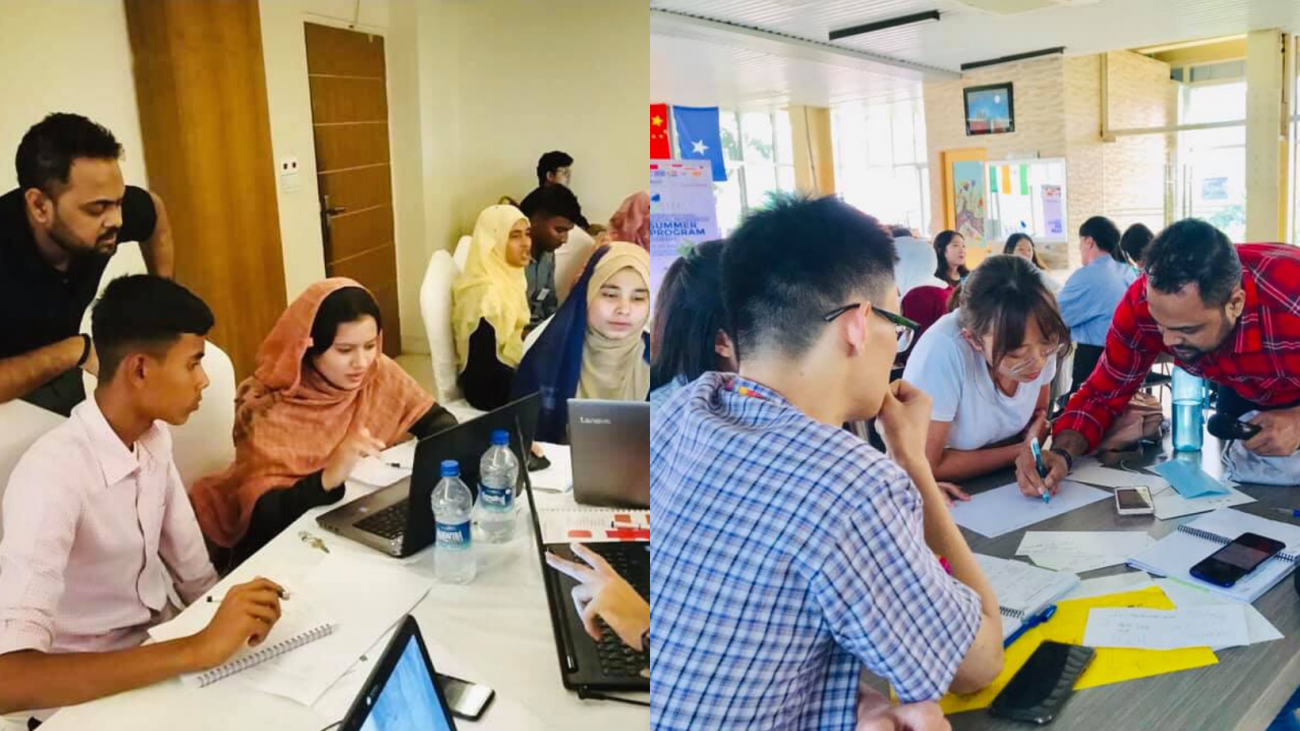The world presented us with new opportunities and challenges which requires a different approach to education. In this fast-changing world, it has become necessity for children to acquire the knowledge, skills, values, attitudes and take action to adapt and to thrive. There is a need for a change in the Education Systems which needs to prepare them for living and working in a global society. In this change circumstances, the big issues affecting our planet is the climate change and global poverty. To face the challenges we require an innovative generation that knows how to find solutions. Therefore Competency Based Education has been has been brought in to practices. To ensure Sustainable Development of the country we need to ensure proper education to the young generation of Bangladesh. Bangladesh is considered as the most potential country of Asia as major part of its population are young generation which means they are in the level of productive workforce of the country. If we can train them to become skilled workforce, then it will have major impact to the national economy.
One of the key reasons for economic progress of develop countries are the skilled human resources and the development was possible for the education systems which ensures the young generation not only have the required knowledge, skills, attitude and values to work in the industry but also develops them as responsible global citizens through creating sense of responsibilities on social cultural and environment issues. Competencies include explicit, measurable, transferable learning objectives that empower students. CBE place a heavy emphasis on what a person can do in the workplace after the completion of the training program. One of the primary advantages of CBE is that, the focus is on the success of each participant. It gives individuals opportunities to “achieve qualifications that relate to required performance in the workplace”. CBET is very positively regarded by employers, job seekers, management and learners in many countries like the Australian enterprises and it strongly supports the development of job-specific skills. Enterprises are also very positive about the increased level of on-the-job learning.
In Bangladesh the Education systems has not yet been changed in the last few years to ensure sustainable development. Though there are some opportunities to learn and practice CBE, but it has not been promoted as we expected. Therefore, a large no of students remain unemployed or fail to get desired job after graduation. They fail to serve the industry based on its requirement. But recently the trend has changed. The Higher Education Institutions are very much serious on its student’s employability and they have started to change the teaching and learning approaches in the institutions. Besides, they are now very much concerned to develop responsible global citizen which has taken into account considering the Global perspective. Here, students, educators, employers, and policymakers alike are beginning to embrace competency-based education models that have the potential to transform standards of higher education, keeping students competitive in the global workforce. It focuses sharply on what students know and can do—are on the rise. These programs do not assume that successful completion of a series of courses results in the achievement of learning outcomes; rather, they confirm student learning through individual assessment. Probable Obstacles/Challenges in Implementing CBE in Bangladesh: There are a number of challenges hindering the effective implementation of CBE in Bangladesh such as
- Lack of awareness in CBE systems
- Lack of attitude to adopt the new learning & teaching systems
- Very few certified CBE trainers in Bangladesh though ILO is working in this sector
- Lack of Fund to change the existing Teaching & Learning systems
The higher education has changed remarkable in this decade and if we have to adopt the changes to ensure sustainable development. The adoption of Competency Based Education and Knowledge on Environment factors has become essential to develop Global Responsible Citizens. Bangladesh shouldn’t lag behind here. Time has come to shift to a new Higher Education Systems which will ensure Knowledge, Skills, Attitude, Values and Action among the young generation who will lead the country.
Author
Kabul Mohammad Hasan, Executive Director, BSDI
Email: [email protected]

